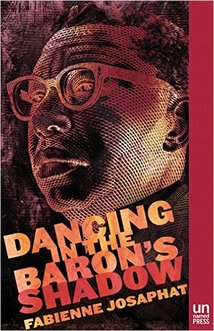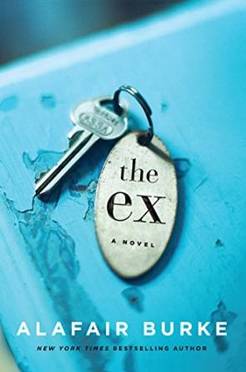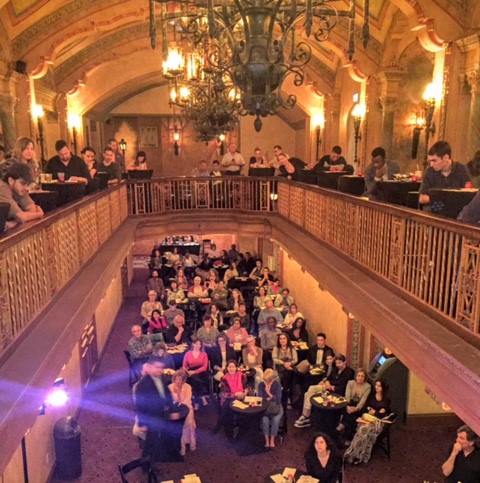| When I arrived at Coral Gable’s Books & Books for Fabienne Josaphat’s launch of her debut novel, Dancing in the Baron’s Shadow, the first thing that struck me was just how filled the local bookstore was with people. it was encouraging to see that the literary event, scheduled at 8 p.m. on February 23rd, a Friday, had still managed to call so many readers at the end of a work week. Every seat in the room was filled, and excited onlookers stood by the bookshelves. I felt lucky I managed to find my seat in the back row. The second thing that struck me was just how beautiful a bookstore Books & Books is. Every time I walk in, the sheer variety of books seems to me more like art pieces decoratively arranged on tables and bookshelves in colorful array. Josaphat’s Dancing in the Baron’s Shadow regally stood among them, with its bold red and black cover depicting Francois Duvalier, brutal dictator of Haiti and antagonist of the novel. Josaphat’s novel is set in 1965, when Duvalier—or, as he was called, Papa Doc—ruled Haiti with the ruthless Tonton Macoutes militia. The novel follows two brothers struggling to survive in Papa Doc’s Haiti, with one brother imprisoned and the other desperate to try and save him against all odds. |
Josaphat’s voice commanded the room as she began to read an excerpt from Dancing in the Baron’s Shadow. The reading was brutal. Josaphat had chosen two passages, each focusing on one of the brothers in the novel, Raymond and Nicolas, as each faced a new low under Papa Doc’s regime. Raymond’s wife and children had left for the United States without him, while Nicolas—a professor writing dangerous propaganda against the dictatorship—was violently arrested and thrown into the infamous Fort Dimanche.
Josaphat’s careful research shone through with piercing historical detail, creating a Port-au-Prince that was at once vivid and arresting to imagine. Despite having no prior knowledge of Duvalier’s Haiti, I felt oriented by Josaphat’s setting and descriptions. More importantly, however, I felt a twinge of sympathy for each of her characters as they faced the worst tragedies of their lives. The danger, the risk, the devastation all read clearly off the page, and when Josaphat finished I felt emotionally exhausted the way only a good book can leave you. When she closed the book and looked up at her audience, everyone applauded wildly.
I was unable to stay for Josaphat’s question and answer session (unfortunately my parking meter didn’t last as long as I’d expected), but the amount of hands that shot up when I left showed to me that I was not the only one moved by Josaphat’s prose. By the time I returned, every single copy of Dancing in the Baron’s Shadow had been sold out—in the shocking span of fifteen minutes! I was so impressed I couldn’t even be disappointed. It would be an understatement to call this book launch a success, an auspicious start for Fabienne Josaphat’s book tour.
—Stephanie Selander





 RSS Feed
RSS Feed